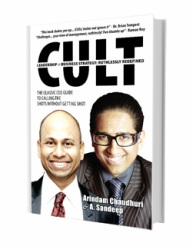H G Wells
“All who have meditated on the art of governing mankind have been convinced that the fate of empires depends on the education of youth.”
Aristotle
I think this is the first time I have started a write-up with quotes from famous people. I normally do not do that, because I usually feel so strongly and passionately about issues that I simply start writing and words just flow out in a torrent. But I am making an exception this time. And I have strong reasons for doing so.
Let me digress a little before stating them. This will be the 10th consecutive year that I have written and presented an ‘Alternative Budget’. This will be the 5th consecutive year that the ‘Alternative Budget’ appears in Business & Economy (Yes, your favourite magazine – when it comes to sharp, incisive and thought-provoking intellectual analysis – is about to complete 5 years!). For close to 10 years, I have been repeating ad nauseam that India can never hope to be a country that is respected in the 21st century unless there is a drastic and dramatic overhaul of social infrastructure. Apart from occasional good news on that front, budgets over the last decade have been largely disappointing when it comes to dealing with social infrastructure. Of course, lip service and wise quotes from historical personalities have always been offered by successive finance ministers. Of course, ambitious schemes with thousands of crores of budgetary allocations have been launched. Of course, well meaning policies have been designed and implemented. But has there been a really substantive improvement in outcomes? Do poor Indians actually have better access to healthcare now than they had when the 21st century began? Do they actually have better access to education? You know the answers as well as I do.
I have often been frustrated and dismayed by the answers. This prompted me to present an Alternative Budget in 2008 with a headline Ban the Budget. My logic was that too much needless attention was lavished on the Union Budget. My suggestion to the Finance Minister was to use the Union Budget to launch some path-breaking policies for the social infrastructure sector and let nitty gritty issues be handled through the year during the normal course. In 2009, I went a step ahead and presented an Alternative Budget with a headline Khao aur Khilao Budget. My logic was simple. I raised a fundamental question: How come China and South Korea with levels of corruption as deep and endemic as India have delivered fantastic outcomes in social infrastructure while India has failed to do so? I also argued that economics was all about incentives and if a Union Budget offered the right kind of incentives, stakeholders in India, too, could dramatically improve social infrastructure. Just in case you are interested in what the Khao aur Khilao Budget suggested, please visit www.businessandeconomy.org/09072009/storyd.asp?sid=4485&pageno=1.
Having digressed a little, let me come now to the theme and headline of my Alternative Budget this year. It is called A Budget for Three Idiots. You guessed it. It has been inspired by the iconoclastic movie that revealed how hollow our education system is. It also offered us hope and redemption. And it told us poignantly that the biggest challenge for India in the 21st century is to transform its education system. The quotes that appear right at the top of this write-up tell me that thinkers and philosophers throughout history have consistently argued that a society, a nation or a civilization simply cannot survive – far from flourish – without the right kind of education. Aristotle mused about the power of education to sustain an Empire more than 2,000 years ago. And in the 20th century, George Orwell, the author of timeless classics like Animal Farm and 1984 highlighted the importance of education in an equally compelling manner.
Of course, you don’t need to be a philosopher to understand the value and power of education to make or alternatively mar the future of India in the 21st century. And the way things are going at the moment, only the naïve will believe that India is on the cusp of an era where it will reap the much talked about ‘demographic dividend’. Just a few days ago, the international body UNESCO released a report called ‘Education for All Development Index’. It tracks the progress made by various nations on the key Millennium Development Goals of achieving universal education by 2015 from 1999 to 2007. The results in the report are sobering, if not disturbing for those who keep prattling childishly about India’s demographic dividend. The rank given to India is 105, below Bhutan, Zambia, Vietnam and Ghana to name just a few. That is not really surprising since India is consistently ranked pathetically when it comes to human development indicators; and justifiably so. More disturbing are results buried in some tables in the 300-plus page report. A staggering 49 percent of the children drop out of school before they reach elementary level. And before you start talking about some sinister western conspiracy to show India in a poor light, please remember that the report is based on government released statistics. Read More....
For More IIPM Info, Visit below mentioned IIPM articles.
IIPM B-School Detail
IIPM makes business education truly global
IIPM’s Management Consulting Arm - Planman Consulting
Arindam Chaudhuri (IIPM Dean) – ‘Every human being is a diamond’
Arindam Chaudhuri – Everything is not in our hands
Planman Technologies – IT Solutions at your finger tips
Planman Consulting
Arindam Chaudhuri's Portfolio - he is at his candid best by Society Magazine
IIPM ranked No 1 B-School in India
domain-b.com : IIPM ranked ahead of IIMs
IIPM: Management Education India
Prof. Rajita Chaudhuri's Website
------------------------------------------------------------------------------------------------------------------

 RSS Feed
RSS Feed